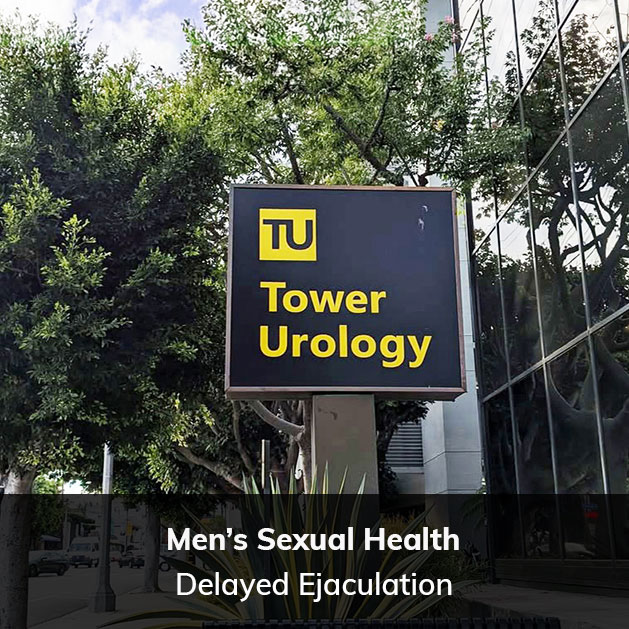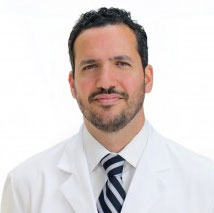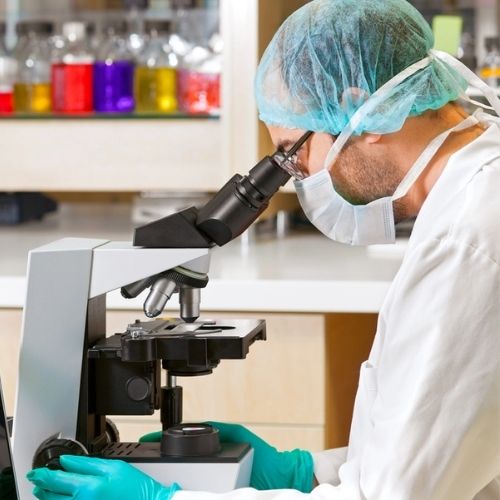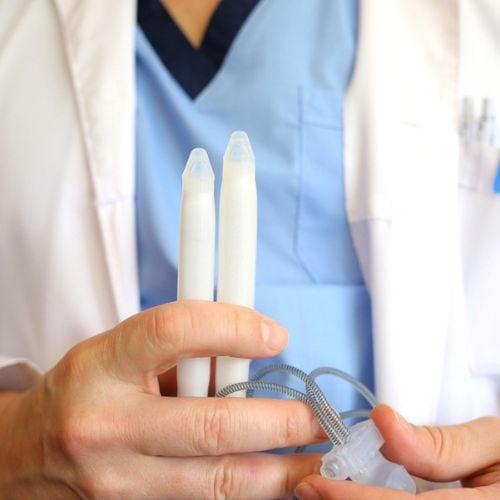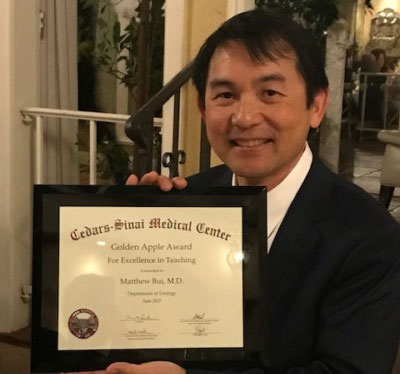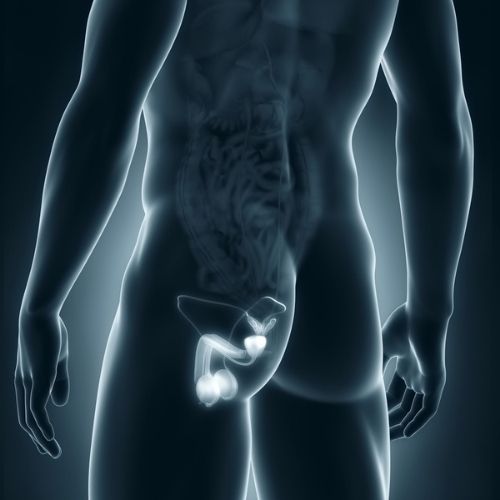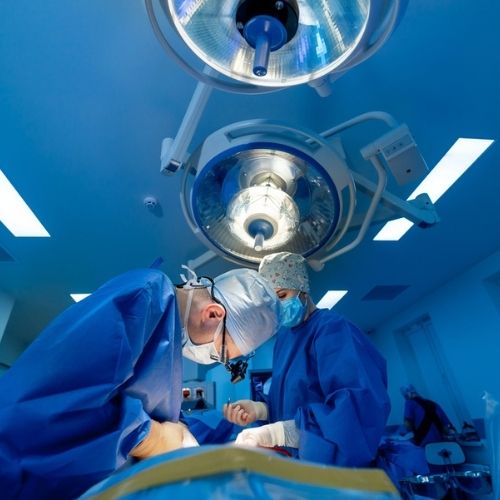What is delayed ejaculation?
Delayed ejaculation (DE) is a lesser-known but impactful sexual health condition that can disrupt a person’s quality of life and strain intimate relationships. DE is a sexual condition which can affect anyone with a fully functioning penis. In other words, a penis which can ejaculate semen naturally.
In such people, DE describes a situation in which it takes the person a prolonged time to reach orgasm and ejaculate during sexual activity, even though they have sufficient sexual desire and are receiving adequate stimulation.
At Tower Urology, our skilled team of urologists and men’s healthcare providers offers expert care with a patient-first approach tailored to your needs.
In comparison to other ejaculation problems, like anejaculation or premature ejaculation, delayed ejaculation involves a significant delay in achieving climax. However, all of these ejaculatory disorders can be very distressing.

Who does delayed ejaculation affect?
Delayed ejaculation can occur at any age but is more prevalent in older men. Often, factors such as age-related changes causing male sexual dysfunction, medication use, and underlying medical conditions like high blood pressure play a role.
However, younger men are not immune to this. Situational stress, performance anxiety, or other psychological causes can trigger these sexual problems in men of all ages.
Delayed ejaculation causes and risk factors
There can be many causes of delayed ejaculation, often involving a combination of physical, psychological, and lifestyle factors. Identifying the root cause is crucial for finding the proper treatment for delayed ejaculation.
Physical causes
- Nerve damage (neuropathy) and other neurological conditions are often related to spinal cord injury or surgery.
- Hormonal imbalances, such as low testosterone levels, thyroid dysfunction, or elevated prolactin.
- Chronic conditions like diabetes, multiple sclerosis, or bladder neck dysfunction.
Psychological causes
- Mental health issues, including anxiety, depression, or trauma.
- Relationship problems or generalized stress.
Medication side effects
- Selective serotonin reuptake inhibitors (SSRIs), such as amantadine, buspirone, and fluoxetine.
- Antipsychotics, antidepressants, and other drugs prescribed for mental health conditions.
- Angiotensin-converting enzyme (ACE) inhibitors, angiotensin II receptor blockers, beta-blockers, and other blood pressure treatments.
- Off-label use of certain medications may also interfere with ejaculation.
Lifestyle factors
- Excessive alcohol consumption or recreational drug use.
- Fatigue or poor overall health.
Risk factors include advancing age, chronic stress, and medical conditions that affect nerve or hormonal health.
What are the symptoms of delayed ejaculation?
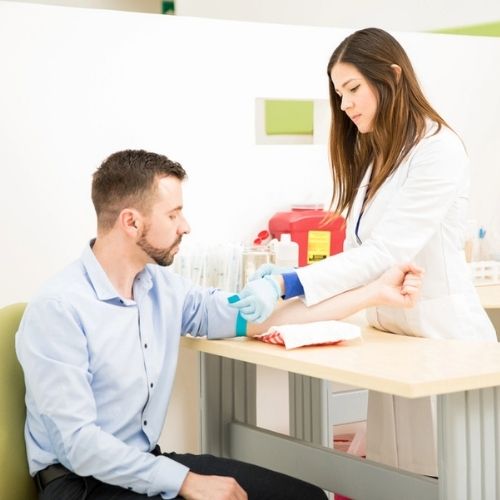
The hallmark symptom of delayed ejaculation is the extended time—or complete inability—to achieve ejaculation during sexual intercourse or masturbation despite sufficient arousal and sexual stimulation. In severe cases, ejaculation may only occur under particular circumstances, such as through a vibrator or targeted stimulation.
How is delayed ejaculation diagnosed?
A thorough and accurate diagnosis is essential for effective treatment. At Tower Urology, our process includes:
- Comprehensive medical history: Understanding your symptoms, medications, and lifestyle.
- Physical examination: Evaluating you for issues like urethral or penile nerve damage.
- Specialized testing: Hormonal assessments (such as checking testosterone and thyroid levels), imaging studies, or evaluations for retrograde ejaculation.
Avoiding misdiagnosis
Delayed ejaculation is often mistaken for erectile dysfunction or attributed solely to medication side effects. Misdiagnosis can delay effective treatment. That’s why our specialists conduct thorough evaluations to differentiate DE from other male sexual dysfunctions.
How to treat delayed ejaculation
At Tower Urology, we offer a wide range of treatment options based on the underlying cause:
- Behavioral and psychological therapy: Working with sex therapists to address situational or generalized psychological causes, such as anxiety or relationship issues.
- Increasing sexual stimulation: Using specific techniques to enhance arousal and sensation.
- Medication adjustments: Adjusting medications like SSRIs or blockers that may contribute to ejaculatory dysfunction.
- Hormonal therapy: Correcting low testosterone or other hormonal imbalances through tailored treatments.
- Lifestyle changes: Improving physical health through pelvic floor exercises, stress management, and dietary modifications.
- Innovative therapies: Cutting-edge treatments like nerve stimulation therapy, platelet-rich plasma (PRP) injections, or cyproheptadine to improve ejaculatory latency and enhance overall sexual response.
Recovery and long-term outlook
Sexual function recovery depends on the chosen treatment. Behavioral therapy and lifestyle changes often produce gradual improvements, while medical interventions, such as hormonal therapy, usually provide quicker results. Innovative therapies like PRP typically involve minimal downtime, allowing patients to resume their daily routines immediately.
Why trust Tower Urology for delayed ejaculation remedies in Los Angeles
Take the first step toward regaining confidence and improving your sexual experience by scheduling a consultation with our team. Tower Urology is dedicated to providing expert care and personalized treatment plans tailored to your unique needs.
Tower Urology’s board-certified urological team and erectile dysfunction specialists have been leaders in successfully treating erectile dysfunction for decades, with specialists trained in all aspects of urological care. We are currently accepting new patients.
Tower Urology is a proud affiliate of Cedars-Sinai Medical Center, ranked #1 in California and #2 in the nation by U.S. News & World Report. This partnership reflects our commitment to delivering the highest standard of urologic care with the best urologists in Los Angeles. Our years of experience, combined with access to Cedars-Sinai’s world-class facilities, and our exceptional, innovative, and state-of-the-art urological care make Tower Urology a leader in Southern California.
We invite you to establish care with Tower Urology.
Tower Urology’s doctors are conveniently located for patients throughout Southern California and the Los Angeles area, Beverly Hills, Santa Monica, West Los Angeles, West Hollywood, Culver City, Hollywood, Venice, Marina del Rey, and Downtown Los Angeles.
Our services include the full range of men’s sexual medicine concerns, including treatment for delayed ejaculation (DE), enlarged prostate (BPH), erectile dysfunction (ED), low testosterone,male infertility, vasectomy, and vasectomy removal.
Delayed ejaculation FAQs
Viagra and other similar drugs like Cialis are primarily used to treat erectile dysfunction and do not typically cause delayed ejaculation. However, if you’re experiencing persistent issues, it’s best to consult a Tower urologist for a professional consultation.
Yes, delayed ejaculation therapy often involves counseling, cognitive-behavioral therapy (CBT), or sex therapy. These approaches help address psychological factors like anxiety, performance pressure, or past experiences that may contribute to the condition. If necessary, therapy, combined with medical treatment, can be an effective solution.
Sources
The drug treatment of delayed ejaculation
https://www.ncbi.nlm.nih.gov/pmc/articles/PMC5001980/
Psychosexual therapy for delayed ejaculation based on the Sexual Tipping Point model
https://www.ncbi.nlm.nih.gov/pmc/articles/PMC5001992/
Delayed Ejaculation: Pathophysiology, Diagnosis, and Treatment
https://www.ncbi.nlm.nih.gov/pmc/articles/PMC5756804/
Delayed Ejaculation and Associated Complaints: Relationship to Ejaculation Times and Serum Testosterone Levels
https://doi.org/10.1016%2Fj.jsxm.2017.06.013
Delayed Ejaculation: Pathophysiology, Diagnosis, and Treatment
https://wjmh.org/DOIx.php?id=10.5534/wjmh.17051
The pathophysiology of delayed ejaculation
https://pmc.ncbi.nlm.nih.gov/articles/PMC5002008/

